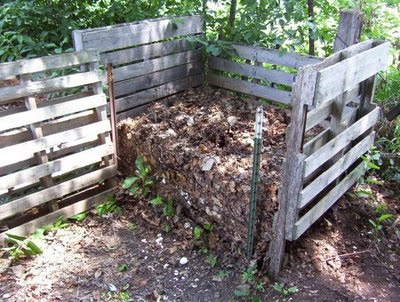
While not finished with Sir Albert Howard's The Soil and Health, I am amazed at his common sense findings that the agribiz seems to ignore. The overarching idea appears to be--composting will solve many, many problems of agriculture. The artificial fertilizers (the use of which was starting to ramp up after WWII) leached the soils of nutrients employed by plant and soil to fight off diseases and pests. By adding, sometimes tiny amounts, compost, many, if not all of the problems would disappear. The appearance of the fruit and vegetable improved, as well as yield.
The first three or four chapters of Howard's book would probably appeal to everyone; I'm in the middle and finding some of it tedious--the research he did during his tenures in India, Africa, and the Carribean, while sometimes interesting, can be a bit dry. He's not terribly techincal, which is good since I ain't no botanist, so that isn't the problem. He needs to moisten, rather needed to given that he died in 1947, his prose a bit. Otherwise, an enlightening read.
Comments